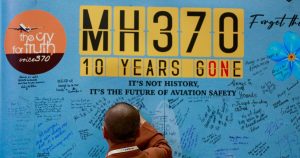Seth Rogen’s Perspective on Trump’s Second Term and America’s Cyclical Politics
Seth Rogen, the actor and comedian known for his roles in films like Superbad and The Interview, has offered a unique perspective on the political landscape of America, particularly in light of Donald Trump’s potential second term as president. In a recent interview with Esquire, Rogen suggested that Trump’s rise to power, and the broader dynamics of American politics, can be understood through a lens of cyclical cultural shifts. He emphasized the idea that the U.S. has long been a divided nation, oscillating between periods of social liberation and conservative backlash. For Rogen, this dynamic is less about a downward spiral into chaos and more about a natural, albeit messy, process of societal evolution.
The Cycle of Cultural Push and Pull
Rogen painted a vivid picture of this cultural cycle, describing it as a pendulum swing between two extremes. On one side, he imagined a world of "hippies doing acid and fucking on their lawns," symbolizing a era of countercultural freedom and experimentation. On the other, he depicted a backlash against this perceived excess, where people demand a "cleaning up of the streets," driving a shift toward conservatism and order. According to Rogen, this back-and-forth dynamic is not new; it’s a recurring pattern in American history. He argued that Donald Trump’s second term, should it happen, would be the latest manifestation of this cycle. The "cleaning up the streets" metaphor, in this context, could represent a broader desire to restore traditional values and impose order after a period of social upheaval.
Historical Context and the Divided Nation
Rogen’s comments were not just a reaction to the present moment but also a reflection on the deeper historical divisions that have shaped America. He noted that the U.S. has been a "very divided country in a lot of ways" since the end of the Civil War. This division, according to Rogen, is not limited to politics but extends to cultural and social realms. The Civil War, which ended in 1865, was a defining moment in American history, but the fissures it exposed—from racial inequality to regional identities—have persisted in various forms. Rogen’s observation aligns with the idea that America’s progress is often marked by periods of tension and conflict, as different groups vie for power and influence.
Maintaining Hope in the Face of Uncertainty
While Rogen acknowledged the challenges posed by this cyclical dynamic, he expressed a cautious optimism about the future. He admitted that it’s easy to get caught up in worst-case scenarios, wondering if society is on the brink of collapse. However, he encouraged taking a step back and recognizing that the pendulum of history is likely to keep swinging. "The ball will roll onwards," he said, even if its path is not always straight. This perspective suggests that while the current political climate may seem dire, it is part of a larger, ongoing process of societal growth. Rogen’s hopeful outlook does not ignore the real harm that political decisions can cause, but it frames these challenges as temporary setbacks rather than irreversible defeats.
The Power of Metaphor in Understanding Politics
In the interview, Rogen also used a more personal metaphor to illustrate his point about power and identity. He recalled a story about someone who likened their power to the hair of Samson from the Bible, believing that their strength and stature were inseparable from their appearance. For Rogen, this metaphor speaks to the ways in which political figures, like Trump, often cultivate a persona that becomes central to their appeal. When that persona is challenged or undermined, it can lead to a loss of power and influence. This story serves as a reminder that political power is often tied to image and perception, and that even the most seemingly invincible figures can fall.
Balancing Realism with Hope
Rogen’s comments strike a balance between realism and hope, acknowledging the difficulties of the present while holding onto the belief that progress is possible. His perspective reminds us that political and cultural shifts are rarely linear and often involve periods of regression before meaningful change can occur. While this can be frustrating for those advocating for progress, it also underscores the resilience of societies and the enduring push for a more equitable future. By framing the current political climate as part of a larger historical cycle, Rogen offers a way to navigate uncertainty with a sense of perspective and hope.















